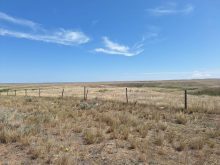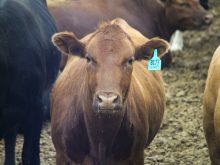A hundred years of scientific innovation and agricultural advancements produced by University of Alberta faculty and researchers is being celebrated in a new book entitled A Century of Solutions.
The Department of Agriculture — now the faculty of agriculture, life and environmental sciences (ALES) — was established in 1915 and had 16 students that first year. In was a quiet start, but much has happened since, said author Curtis Gillespie.
“It is unbelievable the number of things they do in that faculty — it’s just mind blowing,” said Gillespie, who with fellow Edmontonian writer Theresa Shea spent a year researching the book.
“Every single thing the faculty does touches every other faculty on campus. ALES really uses every other faculty. You can’t say that about other faculties.”
The history is a general interest book, he said.
“We wanted a narrative book that wasn’t too academic,” said Gillespie. “In discussions with the dean (John Kennelly), (communications manager) Michel (Proulx), and the others who were involved with the project, they decided that they wanted something readable, entertaining, and enjoyable… There are no footnotes or academic language. We just wanted to make it a really great story that all kinds of readers can enjoy and get something out of.”
Gillespie said he was surprised both by the diversity of the faculty and the impact the school and its alumni have had both nationally and internationally. Reading about past deans and faculty members and their various eccentricities was particularly enjoyable, he added.
Read Also

Farming Smarter receives financial boost from Alberta government for potato research
Farming Smarter near Lethbridge got a boost to its research equipment, thanks to the Alberta government’s increase in funding for research associations.
“Dean Fred Bentley, for example, was so frantically worried that we (the human race) were going to breed ourselves into extinction — that was all he talked about,” Gillespie said.
“Fifty years later, the global population has exploded. But then, the thing that’s so fascinating about ALES is how much of its research has been on how to keep food production up to pace with the population explosion,” he said.
The 250-page-plus, heavily illustrated book, which costs $20, can be purchased from the agriculture faculty. It was released last week at the kickoff to what will be a year of centenary events, including a number of public lectures and events. For more info, go to ales100.ales.ualberta.ca.
















